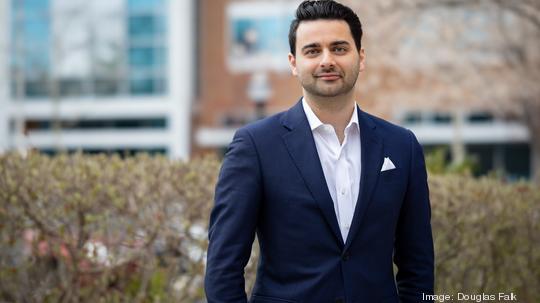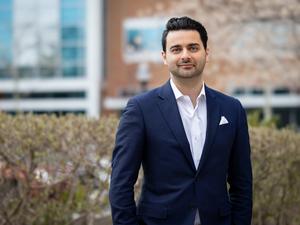
Baltimore's Vita Therapeutics announced the completion of a $31 million series B funding round on Wednesday, propelling the cell therapy company toward a clinical trial and the development of new treatments for rare diseases.
The round, led by Cambrian BioPharma and Solve FSHD, will pay for the studies Vita needs for a human clinical trial for VTA-100, a treatment for a genetic disease called limb-girdle muscular dystrophy that weakens the muscles of a patient's arms and legs. CEO Douglas Falk hopes to start a Food and Drug Administration approved human trial for the drug in 18 months. The round is part of a recent expansion of the cell therapy industry in Maryland, with biotech company Orgenesis partnering with Johns Hopkins University to create a cell therapy research center, while the Maryland Stem Cell Research Fund saw its budget more than double in the past year.
Along with the lead up to a human clinical trial, the series B round will also fund the development of a new treatment, VTA-120, for patients with facioscapulohumeral muscular dystrophy (FSHD), a genetic disease that impacts the muscles of the face, shoulders and upper arms. The company currently has around 30 staff and hopes to add around 10 more employees in the next year to spearhead the clinical trial. Vita Therapeutics previously raised $32 million in a series A round in 2021.
Currently, Vita Therapeutics creates cell therapies based on an individual patient’s cells. Falk’s long-term goal is to create a universal cell line that could be used for every single patient suffering from an illness. A universal cell line would make cell therapy treatment much cheaper, since the need to tailor-make every single treatment for a patient makes the manufacturing cost high.
The round began six months ago and, along with Cambrian BioPharma and Solve FSHD, saw participation from new local angel syndicate Riptide Ventures and Cedars Sinai, alongside existing investors such as the Maryland Technology Development Corp. (TEDCO). Chip Wilson, the founder of lululemon athletica and a FSHD patient, created Solve FSHD with the goal to invest $100 million in treatments for the genetic disease. The potential of VTA-120 to regenerate human muscle, instead of just helping FSHD patients deal with symptoms of the disease, stuck out to Solve FSHD, Falk said.
"Instead of just working towards diminishing symptoms like the majority of treatments, we want to take things a step further and deliver cells that actually replace the function the [diseased] cells should have," Falk said.
As part of the investment, Eva Chin, the executive director of the fund, will join the Vita Therapeutics board.
“Currently there are no treatments available for FSHD, and there is an urgent need to develop disease-modifying treatments that not only regenerate muscle but correct the genetic defect that otherwise leads to the muscle’s inability to repair itself,” Chin said in a release.
Vita Therapeutics spun out of Johns Hopkins in 2019, based around license technology invented by Kathryn Wagner, director of the Center for Genetic Muscle Disorders at the Kennedy Krieger Institute until 2020, and Gabsang Lee, an associate professor of neurology and neuroscience at Hopkins. Earlier this year the company moved to a new 10,000 square-foot location at the University of Maryland BioPark.










